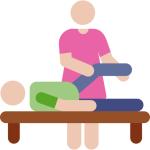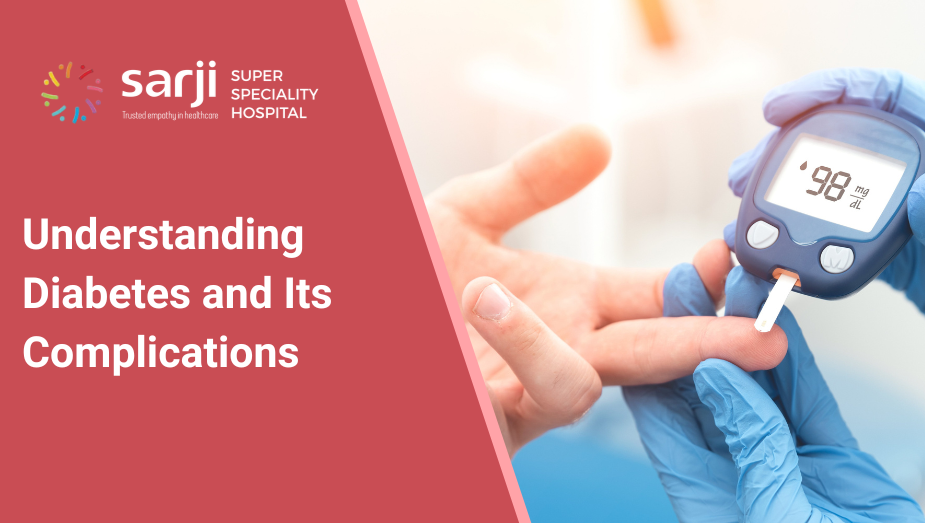Physiotherapy is a specialized treatment approach that aims to facilitate recovery from injuries, illnesses, or surgeries by concentrating on restoring movement, function, and enhancing overall quality of life. It employs various techniques, including manual therapy, therapeutic exercises, modalities like ultrasound and electrotherapy, and patient education to help individuals regain their strength and mobility.
In contrast, rehabilitation is a broader term encompassing a range of therapies-including physiotherapy, occupational therapy, and speech therapy—designed to support individuals in their recovery journey. The primary goal of rehabilitation is to assist patients in transitioning from a state of limited mobility or bedridden status to resuming their daily activities and achieving optimal independence.
The Role of Physiotherapy in Rehabilitation
Within the rehabilitation context, physiotherapy plays a pivotal role. Here’s how physiotherapists contribute to the holistic objective of rehabilitation:
1. Individualized Treatment Plans: Physiotherapists assess each patient's unique needs and design personalized rehabilitation programs. These programs often incorporate exercises to improve strength, flexibility, and coordination, which are tailored to the individual's specific goals and limitations.
2. Restoration of Movement and Function: Following an injury, illness, or surgery, patients may experience limited mobility. Physiotherapy focuses on restoring range of motion and functional capacity, enabling patients to perform daily activities independently.
3. Pain Management: Many patients experience pain during their recovery. Physiotherapists utilize a variety of techniques, including modalities such as heat, cold, or electrical stimulation, alongside manual therapy, to help manage pain and promote healing.
4. Education and Empowerment: Physiotherapists educate patients about their conditions and the recovery process. By empowering patients with knowledge, they participate more actively in their rehabilitation, leading to increased motivation and commitment to their recovery plan.
5. Addressing Psychological Factors: Recovery after an injury or surgery can be mentally and emotionally challenging. Physiotherapists often provide support and encouragement, helping patients maintain a positive outlook and cope with the psychological aspects of rehabilitation.
6. Multidisciplinary Collaboration: Physiotherapists frequently work alongside other rehabilitation professionals, such as occupational therapists and speech therapists. This multidisciplinary approach ensures that all facets of a patient’s recovery are addressed, fostering comprehensive care.
7. Long-Term Wellness: Beyond immediate recovery, physiotherapists focus on setting patients up for long-term success. They may offer guidance on lifestyle modifications, exercise programs, and strategies to prevent future injuries or complications.
In summary, physiotherapy is a critical component of rehabilitation that emphasizes restoring movement and recovering function after an injury, illness, or surgery. By working closely with patients and collaborating with other rehabilitation professionals, physiotherapists ensure a holistic approach to recovery that considers not only physical but also emotional and psychological well-being. This comprehensive strategy ultimately enables individuals to regain their quality of life and return to their everyday activities more confidently and effectively.
Importance of Physiotherapy Post-Surgery
Post-surgery physiotherapy care enhances patients’ recovery and reduces discomfort and swelling after an operation. Physiotherapists employ techniques such as combining ultrasonography and ice to target localized pain and edema, often leading to a decreased reliance on pain medication. The necessity of undergoing physiotherapy after the surgery is underscored by various benefits:
- Improved Spinal Mobility: Physiotherapy aids in restoring spinal mobility, which is crucial for overall movement and function.
- Quicker Recovery After Joint Replacement Surgery: Following hip and knee replacement surgeries, physiotherapy helps patients undergo accelerated recovery and improved joint function.
- Enhanced Cardiovascular Health: Particularly beneficial after colorectal surgery, physiotherapy supports cardiovascular health and overall recovery.
- Reduced Complications After Breast Surgery: Patients undergoing breast surgery often experience fewer postoperative repercussions with the support of physiotherapy.
- Lower Risk of Blood Clots: Physiotherapy helps reduce the occurrence of blood clots, which are a concern in various surgical procedures.
- Shorter Hospital Stays: Engaging in post-surgery physiotherapy has been linked to reduced hospital stays, allowing for a smoother transition back to daily life.
Physiotherapy Subspeciality
Physiotherapy has evolved into various sub-specialties, each tailored to address specific conditions and needs effectively:
- Orthopedic/Musculoskeletal Physiotherapy: This field focuses on treating musculoskeletal system ailments, such as ligament injuries and chronic back pain, by improving muscle strength, mobility, and skeletal alignment.
- Neurological Physiotherapy: It aims to restore mobility and function for those with neurological disorders like stroke, spinal injuries, Parkinson’s disease, and cerebral palsy by rebuilding neural pathways and improving coordination.
- Geriatric Physiotherapy: It addresses age-related conditions like arthritis, osteoporosis, and balance issues in older adults, aiming to reduce pain, restore mobility, and improve overall health.
- Pediatric Physiotherapy: It is tailored for children with skeletal, neuromuscular, or developmental disorders. It focuses on improving motor skills, coordination, and overall physical health.
- Cardiopulmonary Physiotherapy: It specializes in rehabilitating those with heart and lung conditions, such as heart attacks, pneumonia, and asthma, aiding in recovery, strengthening crucial muscles, and improving endurance.
- Women’s Health Physiotherapy: It addresses women’s specific needs related to prenatal care, childbirth, and postnatal recovery, focusing on pelvic floor activation, urinary incontinence, and core strengthening.
Chronic Long-Term Disabilities:
- For people with paraplegia, whether in continuation of initial care or managing complications, physiotherapy aids in maintaining mobility and function.
- Hemiplegics require long-term retraining and rehabilitation for improved movement and independence.
- Quadriplegics can benefit from physiotherapy to enhance motor function and quality of life.
- For amputees, rehabilitation focuses on adjusting to prosthetics and maintaining overall physical health.
- Patients with various conditions, such as arthritis, poliomyelitis, cerebral palsy, multiple sclerosis, or Parkinson’s disease, find relief and improved function through tailored physiotherapy programs.
- Patients with traumatic conditions, including those recovering from accidents or injuries, benefit from physiotherapy to regain strength, mobility, and independence.
Research suggests that physical therapy has the potential to enhance mobility, overall function, and muscular power. Therefore, it is imperative for patients to engage in physiotherapy before and after their surgical procedures.
Role of Physiotherapy in Preparing for Surgery
A preoperative physiotherapy or pre-habilitation program offers an exercise-based plan for patients preparing for surgery to reduce the risk of complications and optimize outcomes. Here are the benefits of pre-habilitation programs.
- Reduced Need for Rehabilitation Centers: Preparing the body beforehand significantly reduces the chances of requiring post-surgery rehabilitation.
- Improved Cardiovascular Recovery: Low-intensity exercises before cardiothoracic surgery can enhance blood circulation and stimulate faster recovery.
- Prevention of Muscle Loss: Patients who engage in regular exercises targeting the back, arms, legs, and core strength are less likely to experience significant muscle loss during treatment.
- Enhanced Balance and Fall Prevention: Focusing on balance exercises even before the surgery can lower the risk of future falls, potentially preventing extended hospital stays.
- Mental Preparation: Pre-habilitation programs help mentally prepare patients for the challenges and recovery process post-surgery.
Physiotherapy, as an integral part of the broader field of rehabilitation, stands as a beacon of hope for those on the path to recovery. Whether it’s regaining strength after a sports injury, restoring walking after a stroke or improving the quality of life of individuals with a chronic condition, physiotherapy within rehabilitation offers a roadmap to healing. With skilled professionals, customized treatment plans, and a holistic approach, this practice continues transforming lives and restoring movement, function, and independence of countless individuals worldwide.










